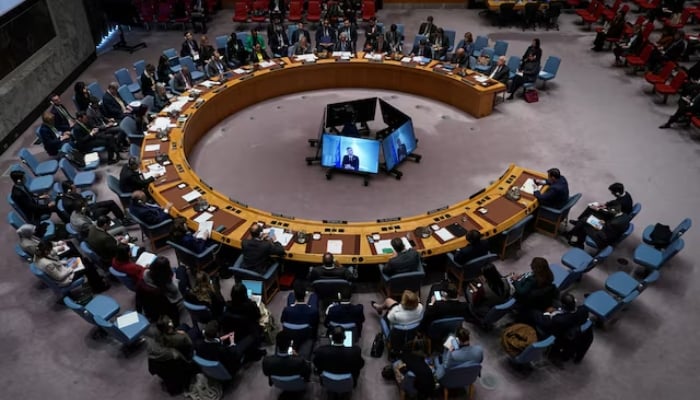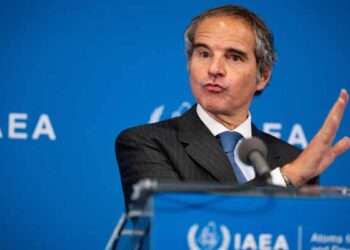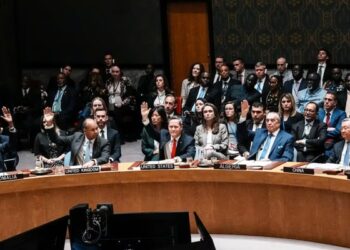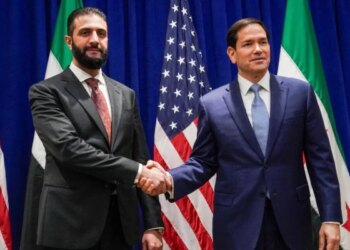Select Language:
As it approaches its 80th anniversary, the United Nations is facing intense scrutiny, grappling with questions about its relevance amidst financial struggles and waning influence. The organization is attempting to reaffirm its importance in a world rife with division and conflict.
On Thursday, the 193 member states of the UN will commemorate the signing of its founding document, the UN Charter, in San Francisco on June 26, 1945. This paved the way for the UN’s formation on October 24 of the same year.
This milestone arrives at a moment when the UN is mired in a complex crisis that has cast doubts on its future.
“Since the Cold War’s conclusion, we’ve seen the organization struggle with issues ranging from the Rwandan genocide to the Iraq war,” noted Richard Gowan, an analyst from the International Crisis Group, in an interview with AFP.
“Whenever a significant crisis unfolds, there are voices declaring that the UN is done for. Yet, it continues to persist,” he said.
However, Gowan recognized that this is an especially challenging time, highlighting the frustrations of many nations regarding the UN Security Council’s inaction on critical issues like the conflicts in Ukraine and Gaza.
This stagnation largely stems from the veto power held by the five permanent members of the council—Britain, China, France, Russia, and the United States—whose interests often clash.
“The entire UN system is experiencing a crisis of credibility, and it’s unclear if the member states have the necessary resources or political will to address it,” Gowan explained to AFP.
Romuald Sciora, a researcher at the French Institute for International and Strategic Affairs, expressed concern that ongoing credibility issues could lead to the diminishing influence of an organization he already considers a “political dwarf” on the global stage.
“I’m uncertain the UN will be around by its 100th anniversary. I envision a gradual decline, where it becomes a mere shadow of its former self—like those forgotten organizations from history,” Sciora stated to AFP.
Still, experts insist that while the UN genuinely needs substantial reforms, many of its challenges stem from external factors, making it an easy target for criticism among its divided membership.
‘Worse Without the UN’
Gissou Nia from the Atlantic Council in Washington expressed her fears that an ethos of “might makes right” is gaining traction, steering society further away from the ideals that inspired the UN’s creation after World War II.
A human rights attorney, Nia remains hopeful that enough individuals will uphold the principles that keep the UN viable, but she remains troubled by the relentless questioning of these values—especially from U.S. ally Israel.
“The continuous attacks labeling the UN as anti-Semitic, a misuse of funds, or a support system for dictators do have a significant impact,” Nia remarked to AFP.
With the world currently grappling with the highest number of ongoing conflicts since 1945, and facing major humanitarian challenges, UN Secretary-General Antonio Guterres stated recently, “The United Nations has never been more necessary. Our values are more relevant than ever, and the needs have reached unprecedented levels.”
However, financial backing has dwindled, particularly as major donors—especially the U.S. under former President Donald Trump—scale back their contributions.
In light of these financial limitations, Guterres introduced the UN80 initiative aimed at streamlining operations, which may entail cuts to thousands of positions.
Gowan remarked, “The UN is a vast organization, and like many large entities, it grapples with bureaucratic inefficiencies. While it faces legitimate criticism, we have perhaps become too accustomed to having this system at our disposal, spending too much time lamenting its shortcomings instead of recognizing its achievements.”
The UN continues to serve as a platform where adversaries can meet and discuss their grievances and ensures that even the smallest member nations have a voice in global conversations.
Furthermore, it plays a crucial role in various areas, exemplified by the World Food Programme providing essential supplies to over 100 million individuals across 120 countries last year and thousands of peacekeepers safeguarding civilians in war zones.
“The UN was a remarkable tool,” Sciora concluded. “Clearly, things would be much worse if it were to abruptly disappear.”






